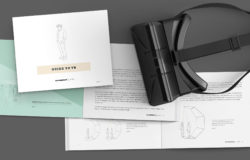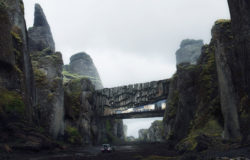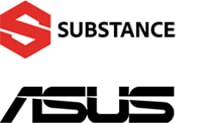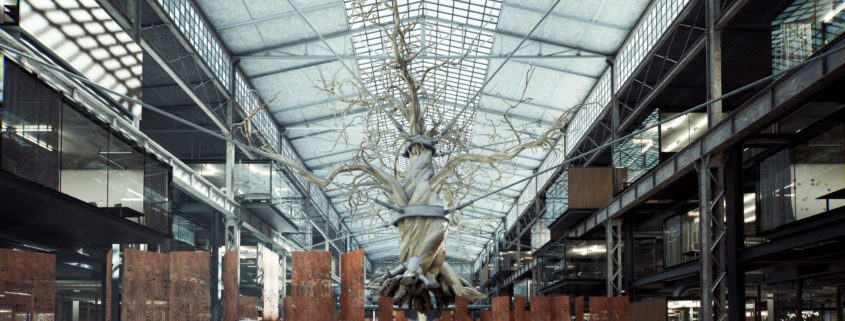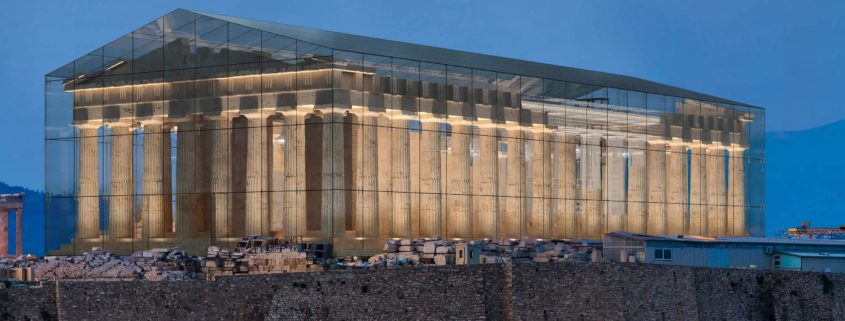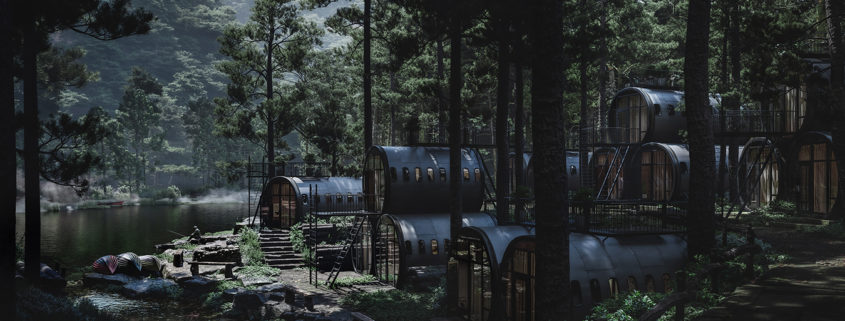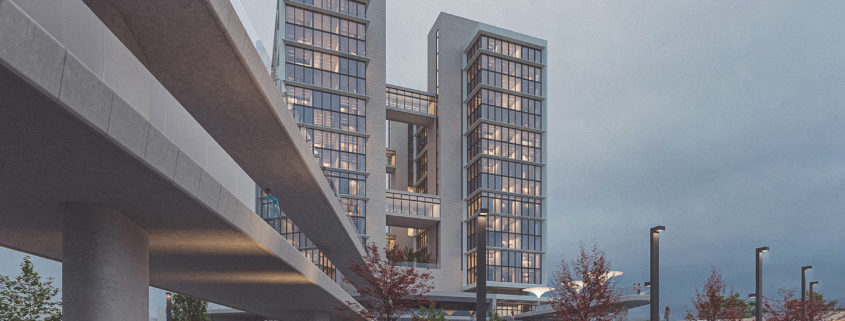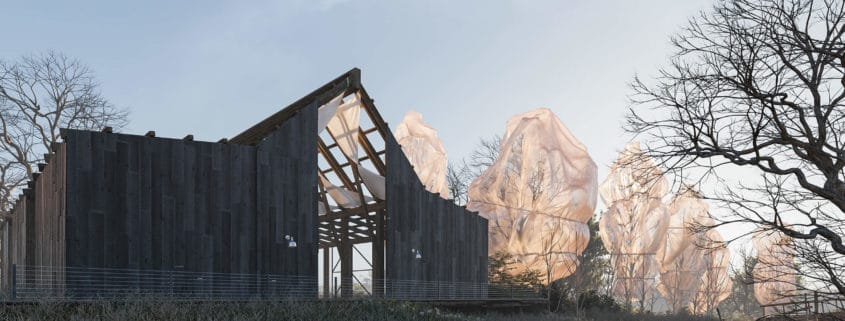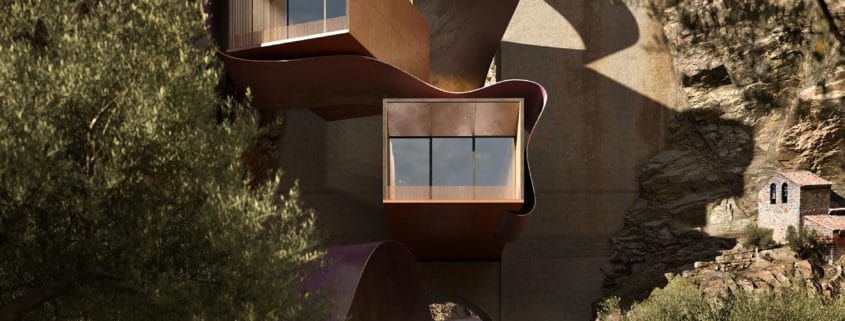Converted entry by Mateusz Sum
My initial idea was the concept of democratized access to sophisticated tools, both hardware and software, which could be easily shared in an open, collaborative workspace by creatives. I thought it matched the main theme rather nicely as one of many examples of how disrupted modern lives are, stuck in a perpetual loop of constant fluctuations, changes and conversions. While I was mainly looking at the context of art and creativity, several associations with industrial revolutions came to mind right away, hence, for the background of the scene I picked an old industrial building, typical for a 19th and 20th century warehouse, factory or foundry. I then filled the space with arrays of little customizable offices and workshops, with robotic arms augmenting artists’ tool- and skill-sets. Such a setup was then fueled with the most valuable resources of current and future times – data. That’s how the data crunching clusters were introduced in the middle of the foundry, as a beating heart that keeps everything in motion. Then, as a juxtaposition and balance to the information cloud packaged in the silicon, I put another totem of power, more tangible, probably more powerful too – a giant old tree, dead in fact and yet still dominant, hovering over modest lounge garden, almost residual. Finally I decided that in this version of the future nature had to be reconstructed and revitalized, rebuilt bit by bit in a chain of biome dioramas which would then return to the original environment and convert it back it its primal state.
For the final output I decided to utilize all the potential of real time graphics, specifically in Unreal Engine 4. I produced a set of still images, an animation, a walkthrough video and a real time experience. Images are presented right below and the remaining content is accessible via provided links. I hope you will all enjoy it.
Animation:
Walkthrough:
Application:
https://drive.google.com/file/d/10pvYC09lP2_LtPuTrb5AJlI5RxkOtDSe/view?usp=sharing
DISCLAIMER:
This project was design with Realtime Ray Tracing in mind, therefore a suitable GPU is required to experience it properly. Also, it is strongly recommended to use Nvidia’s DLSS 2.0, which implies using some of the latest Nvidia drivers. It is, however, possible to explore the project without RTX goodness, although the experience will be of lower fidelity and most likely with very low frame rate.
I would suggest sticking to resolutions around 1080p with DLSS set to Quality or 1440p and DLSS set to Performance. If you would like to try it in 4K – definitely go with the ultra DLSS settings.
Expected framerate should be around 30-60 fps.







